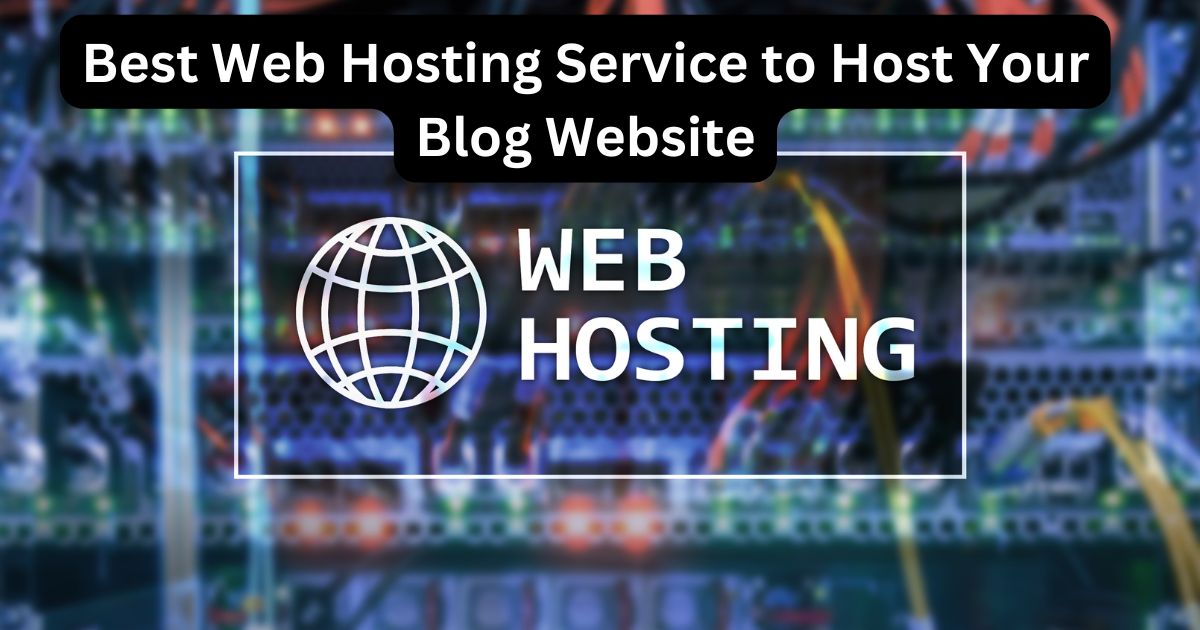Best Web Hosting Service to Host Your Blog Website
When embarking on your blogging journey, one of the most crucial decisions you’ll make is selecting the right web hosting service.
The right hosting provider can significantly impact your blog’s performance, security, and growth potential.
In this guide, we’ll explore the best web hosting options available for bloggers in 2023, covering various needs, budgets, and technical expertise levels.
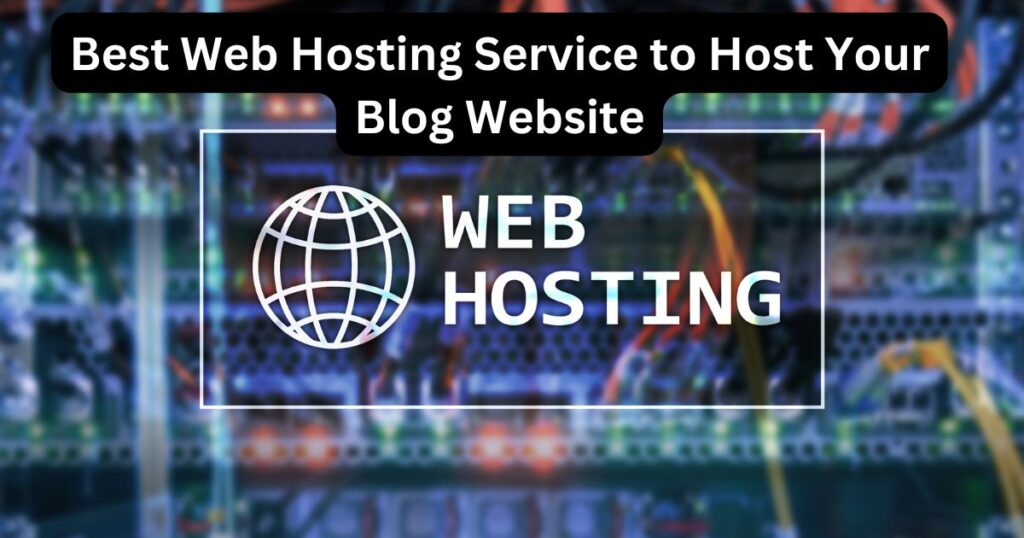
Why Choosing the Right Web Hosting Service is Important
Choosing the right web hosting service is essential for several reasons:
- Performance and Speed: A reliable host ensures your blog loads quickly, which is vital for user experience and SEO.
- Uptime Guarantee: A good host guarantees high uptime percentages, minimizing the chances of your blog being inaccessible.
- Customer Support: Reliable customer support can help troubleshoot issues quickly, keeping your blog running smoothly.
- Scalability: As your blog grows, your hosting needs may change. Opting for a scalable solution prepares you for future growth.
- Security: A secure hosting environment protects your content and your visitors’ data from cyber threats.
Types of Web Hosting
Before diving into specific hosting providers, it’s essential to understand the different types of web hosting available:
- Shared Hosting: Multiple websites share a single server. This is a cost-effective option for new bloggers but may lead to slower performance if other sites consume too many resources.
- VPS (Virtual Private Server) Hosting: A middle ground between shared and dedicated hosting, VPS offers more resources and control, making it suitable for growing blogs.
- Dedicated Hosting: You have an entire server dedicated to your blog. This is ideal for high-traffic sites but comes at a higher price.
- Managed WordPress Hosting: Specifically designed for WordPress sites, this option includes optimized servers, automatic updates, and specialized support.
- Cloud Hosting: Utilizes multiple servers to host your website, providing flexibility and scalability. It’s ideal for blogs with fluctuating traffic.
- Website Builders: Some services, like Wix and Squarespace, offer built-in hosting with user-friendly website creation tools. These are great for beginners but may have limitations for advanced users.
Top Web Hosting Providers for Bloggers
1. Bluehost
Overview:
Bluehost is a leading web hosting provider officially recommended by WordPress.org. Established in 2003, it has built a strong reputation for its reliable service and user-friendly platform. Bluehost is particularly appealing for beginners due to its straightforward setup process and excellent customer support.

Key Features:
- Free domain name for the first year
- 1-click WordPress installation
- 24/7 customer support
- 99.9% uptime guarantee
- Free SSL certificate
Pros:
- User-friendly interface for beginners
- Affordable pricing plans
- Excellent customer support
Cons:
- Renewal rates can be high
- Performance may vary during peak traffic
Best For: Beginners and WordPress users looking for an affordable, reliable hosting solution.
Read More: What is Search Engine Optimization (SEO) and Its Impact on Page Ranking
2. SiteGround
Overview:
Founded in 2004, SiteGround is known for its exceptional customer service and high-performance hosting. It has a strong focus on security, offering several features to protect your blog. SiteGround is particularly favored by WordPress users for its managed hosting options.
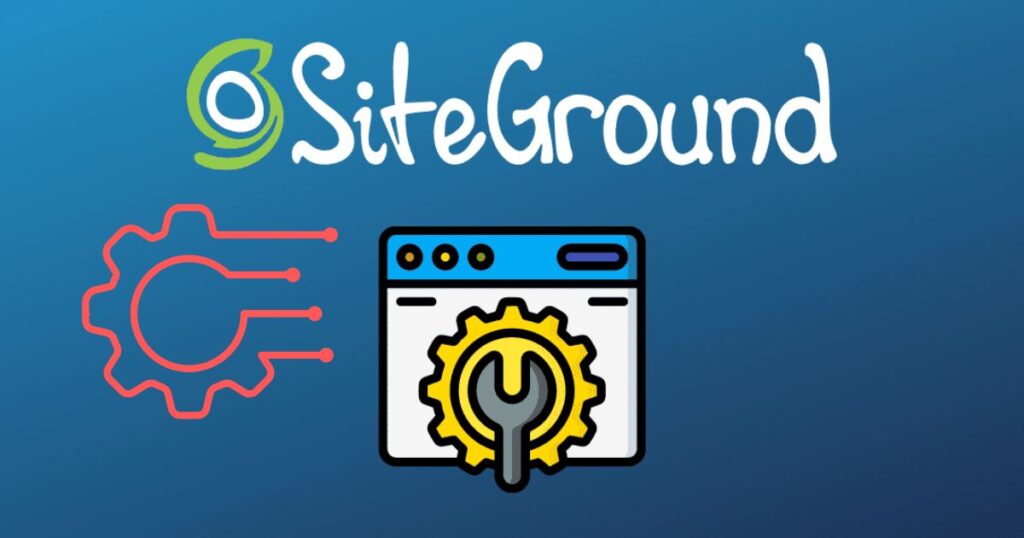
Key Features:
- SuperCacher for improved site speed
- Daily backups
- Free SSL and CDN integration
- Managed WordPress hosting options
Pros:
- Excellent customer support
- High-performance and reliability
- Great security features
Cons:
- Higher renewal rates
- Limited storage on lower-tier plans
Best For: Bloggers who prioritize customer service and performance.
3. A2 Hosting
Overview:
A2 Hosting is recognized for its speed and reliability, offering a variety of hosting plans tailored to different needs. With a commitment to performance, A2 Hosting provides turbo servers that can significantly enhance loading times, making it a favorite among performance-driven bloggers.
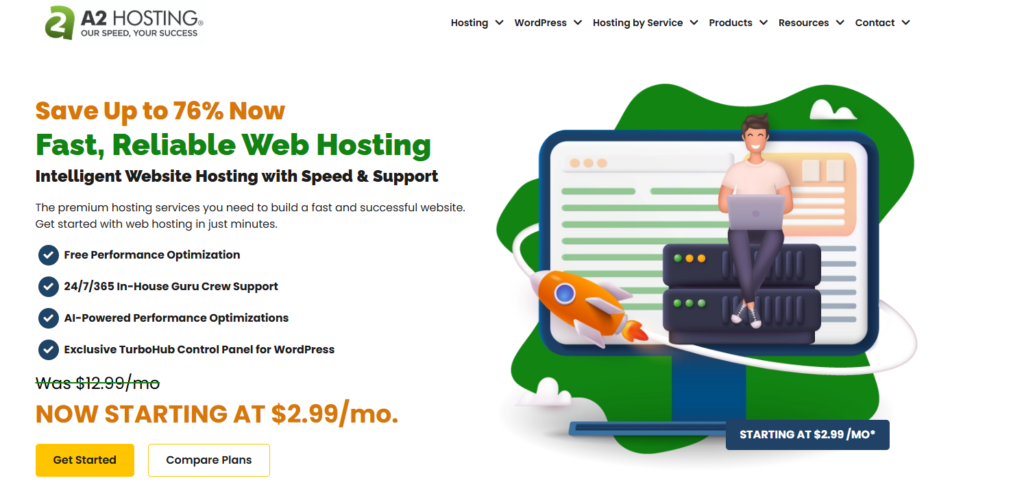
Key Features:
- Turbo servers for up to 20x faster loading
- Anytime money-back guarantee
- Free site migration
- SSD storage for all plans
Pros:
- High-performance hosting
- Excellent customer support
- Flexible plans suitable for different needs
Cons:
- Turbo plans can be expensive
- User interface may not be as intuitive for beginners
Best For: Bloggers focused on speed and performance.
4. HostGator
Overview:
HostGator is a well-established hosting provider known for its affordable pricing and flexible plans. It offers a range of services, making it suitable for bloggers at different stages of their journey. HostGator emphasizes ease of use, making it a popular choice for beginners.
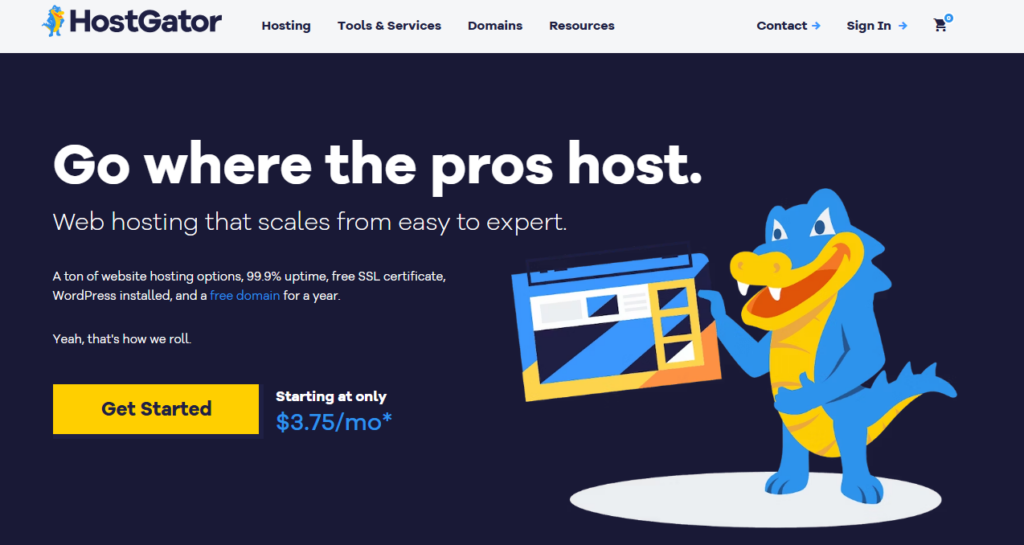
Key Features:
- 1-click WordPress installation
- Free website builder
- 24/7 customer support
- 99.9% uptime guarantee
Pros:
- Affordable pricing
- Easy to use for beginners
- Flexible billing periods
Cons:
- Mixed reviews on customer support
- Uptime can be inconsistent
Best For: Budget-conscious bloggers looking for flexibility.
5. DreamHost
Overview:
DreamHost is known for its commitment to privacy and security, making it an excellent choice for bloggers who prioritize data protection. Founded in 1997, DreamHost offers a range of hosting solutions, including shared, VPS, and managed WordPress hosting.

Key Features:
- Free domain name with hosting plans
- 97-day money-back guarantee
- Automatic daily backups
- SSD storage for improved speed
Pros:
- Strong privacy policies
- Good performance and uptime
- Excellent customer service
Cons:
- User interface can be confusing for beginners
- Limited phone support
Best For: Bloggers who prioritize privacy and security.
6. InMotion Hosting
Overview:
InMotion Hosting is known for its robust features and excellent performance, particularly for business-oriented blogs. Founded in 2001, it offers a variety of hosting plans, including shared, VPS, and dedicated servers, catering to different needs and budgets.
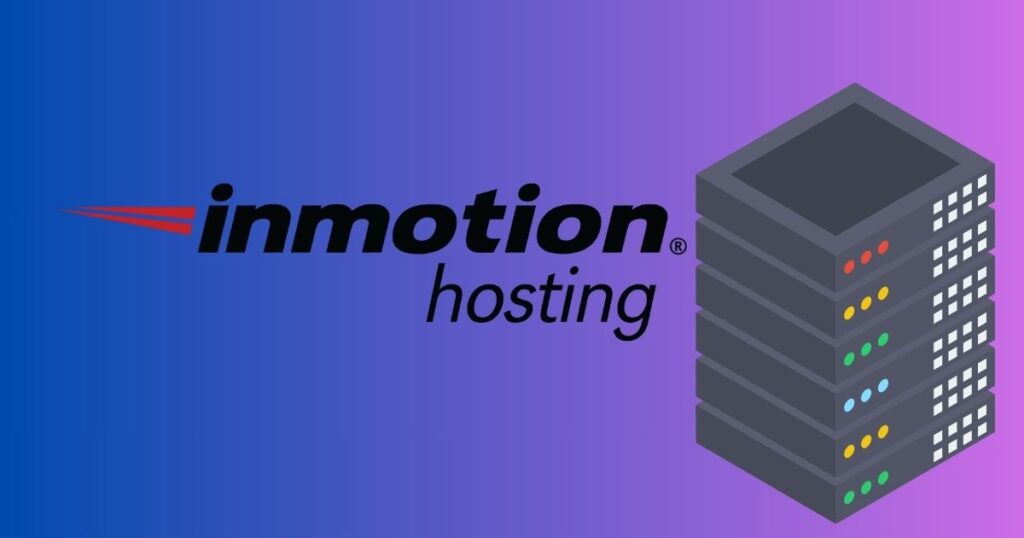
Key Features:
- Free website migration
- SSD storage for faster loading times
- 24/7 customer support
- 90-day money-back guarantee
Pros:
- Great performance and uptime
- Comprehensive support resources
- Suitable for growing blogs
Cons:
- Higher initial costs
- Account setup can take longer than expected
Best For: Bloggers planning to scale their websites.
7. GreenGeeks
Overview:
GreenGeeks is an eco-friendly hosting provider that focuses on sustainability while delivering reliable hosting solutions. Founded in 2008, GreenGeeks is notable for its commitment to offsetting its energy usage by purchasing wind energy credits, making it a great choice for environmentally conscious bloggers.
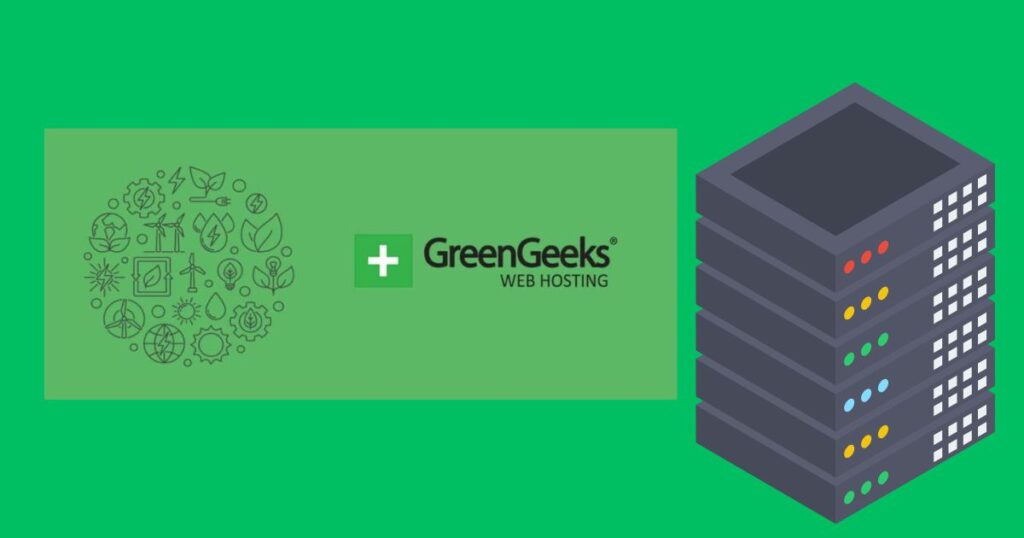
Key Features:
- Free SSL certificate
- Daily backups
- 24/7 customer support
- SSD storage
Pros:
- Environmentally conscious hosting
- Good performance and uptime
- User-friendly interface
Cons:
- Limited data centers
- Higher renewal rates
Best For: Environmentally conscious bloggers.
8. Namecheap
Overview:
Namecheap is widely known as a domain registrar but has also established itself as a reputable web hosting provider. Founded in 2000, Namecheap has gained a strong following due to its budget-friendly plans and user-centric approach.
It caters to a range of users, from beginners to experienced developers, offering a variety of hosting options including shared, VPS, dedicated, and managed WordPress hosting. The company is committed to providing reliable service with a focus on customer satisfaction and transparent pricing.
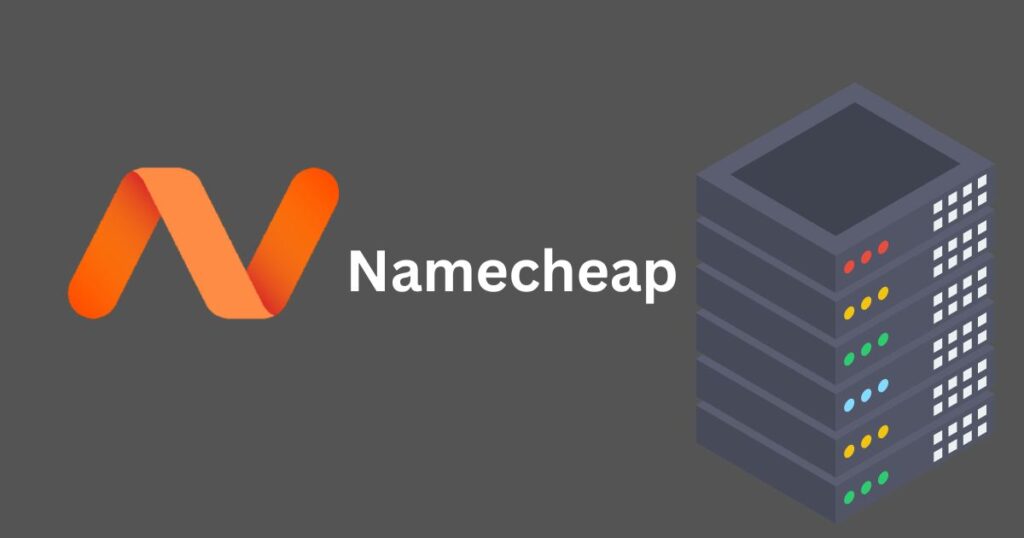
Key Features:
- Affordable Pricing: Namecheap offers some of the most competitive pricing in the industry, making it a great option for budget-conscious bloggers.
- Free Domain Name: Most hosting plans come with a free domain name for the first year, which is beneficial for new bloggers.
- 24/7 Customer Support: Their customer support is available via live chat, ticketing system, and a robust knowledge base, ensuring that help is readily accessible.
- Easy-to-Use Control Panel: Namecheap provides a user-friendly control panel that simplifies the management of your hosting account and domain settings.
- Free SSL Certificate: Security is enhanced with a free SSL certificate, providing encryption for your site and boosting trust with visitors.
Pros:
- Cost-effective hosting solutions suitable for beginners and small businesses.
- Strong security features, including free WhoisGuard privacy protection.
- User-friendly interface that simplifies website management.
Cons:
- Performance can vary, particularly on lower-tier shared hosting plans.
- Limited advanced features compared to some competitors, which may not satisfy more experienced developers.
Best For:
Namecheap is ideal for bloggers and small businesses looking for affordable hosting solutions without sacrificing quality. Its straightforward services and competitive pricing make it a great starting point for those new to blogging or website management. Additionally, users who value a no-frills approach with solid customer support will find Namecheap a suitable choice.
9. Hostinger
Overview:
Hostinger is a global web hosting provider known for its extremely affordable pricing and robust service offerings. Founded in 2004, it has rapidly grown to become one of the largest hosting companies worldwide, serving millions of users. Hostinger is particularly appealing to beginners and small business owners due to its budget-friendly plans and user-friendly interface.
The provider offers a variety of hosting solutions, including shared hosting, VPS hosting, cloud hosting, and managed WordPress hosting, making it versatile for different types of users and needs.

Key Features:
- Incredibly Low Pricing: Hostinger is renowned for its low-cost plans, often starting at just a few dollars per month, making it one of the most affordable options on the market.
- User-Friendly Control Panel: Hostinger offers its custom hPanel, which is intuitive and easy to navigate, even for those new to web hosting.
- Free Website Builder: Users can take advantage of a drag-and-drop website builder that simplifies the process of creating a professional-looking site without coding knowledge.
- 24/7 Customer Support: Hostinger provides round-the-clock support through live chat and a comprehensive knowledge base, ensuring users can get help whenever needed.
- Free SSL Certificate: Enhanced security features include a free SSL certificate, which is essential for securing user data and improving SEO.
Pros:
- Extremely affordable pricing plans, especially for the first term.
- Fast loading times and reliable performance due to optimized servers.
- Easy-to-use tools and resources for beginners.
Cons:
- Limited features on lower-tier plans, which may not meet the needs of more advanced users.
- Higher renewal rates after the initial term can catch some users off guard.
- No phone support, which may be a downside for those who prefer speaking to someone directly.
Best For:
Hostinger is ideal for beginners, hobby bloggers, and small business owners looking for an affordable and straightforward hosting solution. Its excellent pricing and user-friendly tools make it a great choice for those new to creating websites. Additionally, users who do not require extensive technical features or high-level customization options will find Hostinger to be a suitable provider for their needs.
10. HostGator
Overview:
HostGator is a well-established web hosting provider known for its robust services and affordable pricing. Founded in 2002, it has grown to host millions of websites worldwide. HostGator offers a wide range of hosting solutions, including shared hosting, VPS hosting, dedicated servers, and managed WordPress hosting. With its user-friendly interface and comprehensive support, HostGator is a popular choice among beginners and small to medium-sized businesses looking to establish an online presence.

Key Features:
- Affordable Hosting Plans: HostGator provides competitive pricing, especially for its shared hosting plans, making it accessible for budget-conscious users.
- 1-Click WordPress Installation: The convenient installation process allows users to easily set up WordPress and start blogging within minutes.
- Unmetered Bandwidth: HostGator offers unmetered bandwidth on shared plans, allowing your site to handle varying levels of traffic without incurring extra charges.
- Free Website Builder: The built-in website builder simplifies the process of creating a professional site, even for those without technical skills.
- 24/7 Customer Support: HostGator features around-the-clock support via phone, live chat, and email, ensuring users can get assistance whenever needed.
Pros:
- Affordable pricing and frequent promotional offers.
- User-friendly interface and easy setup process.
- Good uptime and performance metrics.
Cons:
- Mixed reviews on customer support response times.
- Renewal rates can be higher than the initial promotional rates.
- Some users report performance issues during peak traffic times.
Best For:
HostGator is ideal for beginners, small businesses, and bloggers who are looking for an affordable and straightforward hosting solution. Its easy-to-use tools and comprehensive support make it a suitable choice for those new to web hosting. Additionally, users who require flexibility and scalability will appreciate the wide range of hosting plans available.
Read More: How Poor SEO Optimization Can Affect Your Website
Factors to Consider When Choosing a Web Hosting Services
When selecting a web hosting provider, consider the following factors:
1. Performance and Speed
When it comes to web hosting, performance and speed are paramount. A fast-loading site not only enhances user experience but also positively impacts your search engine rankings. Search engines like Google prioritize websites that load quickly, which can influence your visibility and traffic.
To ensure optimal performance, look for hosting providers that utilize Solid State Drives (SSDs) instead of traditional Hard Disk Drives (HDDs), as SSDs offer faster data retrieval times. Additionally, many hosts include features like Content Delivery Networks (CDNs) and caching solutions, which can significantly reduce loading times for users regardless of their geographical location.
A good host should also provide performance metrics and monitoring tools so you can track your site’s speed and responsiveness over time, helping you make informed decisions about potential improvements.
2. Uptime Guarantee
Uptime is a critical metric in web hosting that indicates the percentage of time your website is available and accessible to users. Most reputable hosting providers offer an uptime guarantee, typically around 99.9%, meaning your site is expected to be online almost all the time, with minimal interruptions.
However, it’s essential to delve deeper than just the guarantee; look at the host’s historical uptime performance and reviews from other users. Frequent downtimes can lead to lost traffic, diminished credibility, and a negative user experience.
Additionally, consider whether the provider has a robust infrastructure in place, such as redundant servers and data centers, to minimize the impact of outages. A reliable host should also have a transparent policy regarding compensating clients for downtime, ensuring you are protected should unexpected issues arise.
3. Customer Support
Exceptional customer support can make a significant difference in your overall hosting experience, especially if you encounter technical issues or have questions about your service. It’s crucial to choose a hosting provider that offers 24/7 customer support through various channels, such as live chat, phone, and email.
Accessibility is key; you want to ensure that help is available whenever you need it. In addition to availability, consider the quality of support—look for hosts that have knowledgeable and friendly support staff who can assist with a range of technical issues, from basic troubleshooting to more complex server configurations.
Reading user reviews and testimonials can provide insights into the support experience. A solid knowledge base, community forums, and tutorial resources can also be valuable, empowering you to solve issues independently and learn more about managing your blog.
4. Scalability
As your blog grows, your hosting needs may evolve, requiring more resources such as bandwidth, storage, and support. Scalability is an essential factor to consider when selecting a hosting provider, as it ensures that you can upgrade your plan or resources without significant disruption.
Look for hosts that offer a range of hosting solutions, from shared hosting to VPS and dedicated servers, allowing you to transition smoothly as your traffic increases. Some providers also offer cloud hosting, which dynamically allocates resources based on your current needs, providing flexibility and efficiency.
Understanding the upgrade paths and potential costs associated with scaling your hosting will help you avoid future headaches and ensure that your blog can grow alongside your ambitions.
5. Security Features
In today’s digital landscape, security is a top priority for any website owner. When choosing a web hosting provider, look for robust security features that protect your blog from cyber threats, data breaches, and other vulnerabilities.
Essential security measures include a free SSL certificate, which encrypts data transmitted between your site and its visitors, safeguarding sensitive information. Many hosting companies also offer regular backups, which can be invaluable in the event of data loss due to hacking or server failure. Additional security features to consider are firewalls, malware scanning, and DDoS protection.
It’s also worth checking if the hosting provider has a clear policy regarding security incidents, including how they handle breaches and communicate with affected clients. A hosting service that prioritizes security not only protects your blog but also fosters trust with your audience.
6. Pricing and Renewal Rates
While initial pricing is an important consideration when selecting a hosting provider, it’s equally crucial to understand the renewal rates associated with your chosen plan. Many providers offer attractive introductory prices that can be significantly lower than the standard rates, which can lead to surprises when it’s time to renew.
Be sure to read the fine print and ask about the pricing structure for subsequent years. Additionally, consider what features are included in the base price. Some hosts may charge extra for essential services like SSL certificates, backups, or additional email accounts.
Evaluating the overall value—what you get for the price—will help you make a well-informed decision. Finally, look for any money-back guarantees or trial periods, which can provide peace of mind by allowing you to test the service before fully committing.
Check: Why Your Business Needs a Website: Key Benefits to Fuel Your Success
Conclusion
Choosing the right web hosting provider for your blog is crucial for its success. Each of the hosting providers listed above has unique features catering to different needs and budgets. Assess your blogging goals and consider factors such as performance, support, and security to make an informed decision. With the right hosting, you can focus on creating great content while ensuring your blog runs smoothly and efficiently.
By investing the time to find the perfect hosting solution, you’re setting your blog up for long-term success. Happy blogging!

